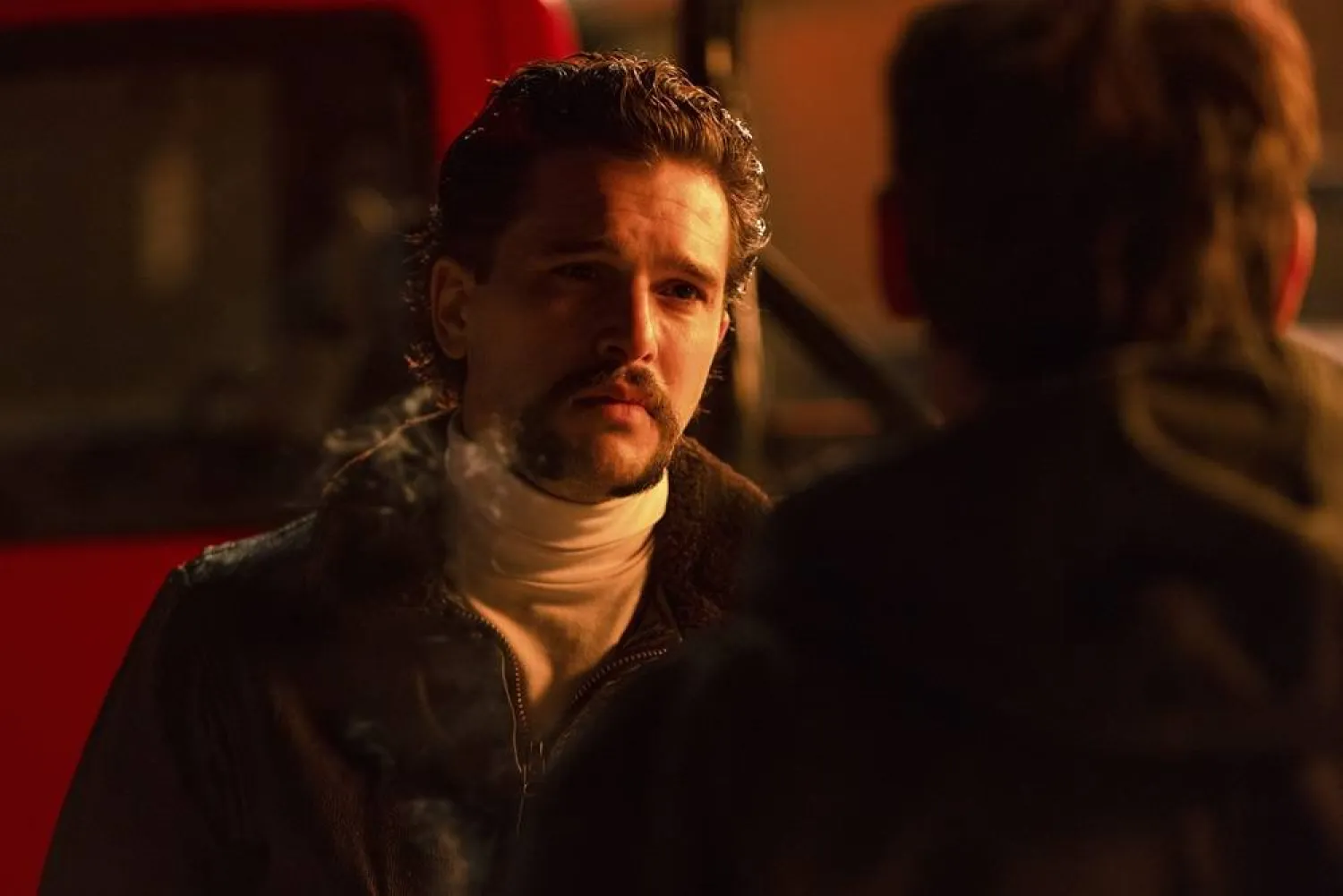Kit Harington jumped at the chance to sport what he calls a “proper ‘stache” to play a drug-running killer in “Blood for Dust.”
The “Game of Thrones” actor — who confirmed a Jon Snow-centered sequel is on ice — stars in the new film alongside Scoot McNairy and Josh Lucas. It hits theaters and digital this week.
Harington, 37, will also play a role in the third season of HBO’s finance drama “Industry,” expected to air later this year. He spoke to The Associated Press recently about trusting directors, joining the show's cast and how his facial hair helped explain his character.
AP: The quiet, ominous tone of this movie was carried through well. How did you know the script would translate the way it did?
HARINGTON: I think a lot of this is a sort of personality gauge business where you meet the director and you hear his or her vision for it. And with (director Rod Blackhurst) I definitely felt that I was in safe hands, and it turned out I was. He had really thought this thing out. I saw that and felt that he was going to be able to deliver on what I thought was a classic story, but quite a well-told sort of American neo-Western.
AP: Your large mustache definitely added to the character of Ricky. Was that your choice?
HARINGTON: Yeah, I think that’s kind of Ricky to have a proper ‘stache. It’s a statement thing and it says everything about him. That he’s sort of all appearance and show. It says quite a lot about the character. I knew there’s gonna be very few times I was going to be able to have a handlebar mustache in something, so I jumped at the chance.
AP: The film exposes an underworld of criminals. Did that attract you to the role?
HARINGTON: We all, in life, have glimpsed through the curtain and seen this world. I’m always sort of fascinated by what a character is addicted to. What drives him? In some ways, Scoot’s character is not innocent in this movie. He gets drawn back to his old addictions and the art of this movie, and the skill of it that Rod manages to get across, is that we kind of forgive him all of that. Because we look this way at Ricky. We look this way at these guys. But we forgive this guy for what he’s doing and his part of that.
AP: Ricky is a criminal, but Cliff (McNairy’s character) has also been disloyal and skirted the law. Did you enjoy the tension between what is right and who’s to judge?
HARINGTON: Ricky is the hero in his own movie, and I think he’s the one who sees it in this guy. He’s like, “You’re not so different from me. Don’t pretend that you are. Just come with me and enjoy the ride.” We spoke about that a lot, like Ricky is dragging him back into this. Back into this story, back into this world, because he’s like, “You don’t get to get out. I’m going to make sure we go for one last kick-ass ride in this, and I’m going to take you with me.” It’s that kind of mentality.
AP: Can you talk about your role on the new season of “Industry”?
HARINGTON: I love that show. I kind of came into it as a bit of a fanboy. And that’s a strange thing for me, because I’d always been in “Game of Thrones” where people would come in and they’d be fans of the show. This time I was coming in as this older actor and as a fan of their show. It was really exciting. It’s just brilliant. The first episode is just mesmerizing and you’re straight back in it. I just think it’s one of the most unique, interesting, tonally exciting pieces out there.
AP: Are you watching “3 Body Problem” (created by “Thrones” creators David Benioff and D.B. Weiss) ... because those are your guys?
HARINGTON: I’ve watched the first two episodes now and I’m thoroughly enjoying it. I really am. It took me all of my courage to sit down and watch other people speaking their words. It took a certain amount of courage to do that in a weird sort of way. But once I was in that, I was like, “Oh, these lucky actors, these brilliant writers!” and I love it.









